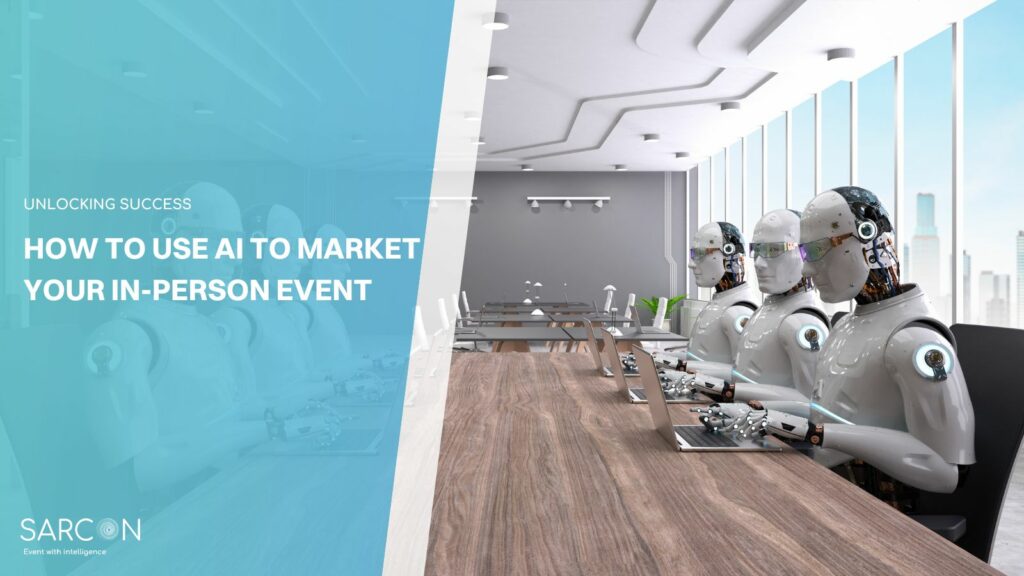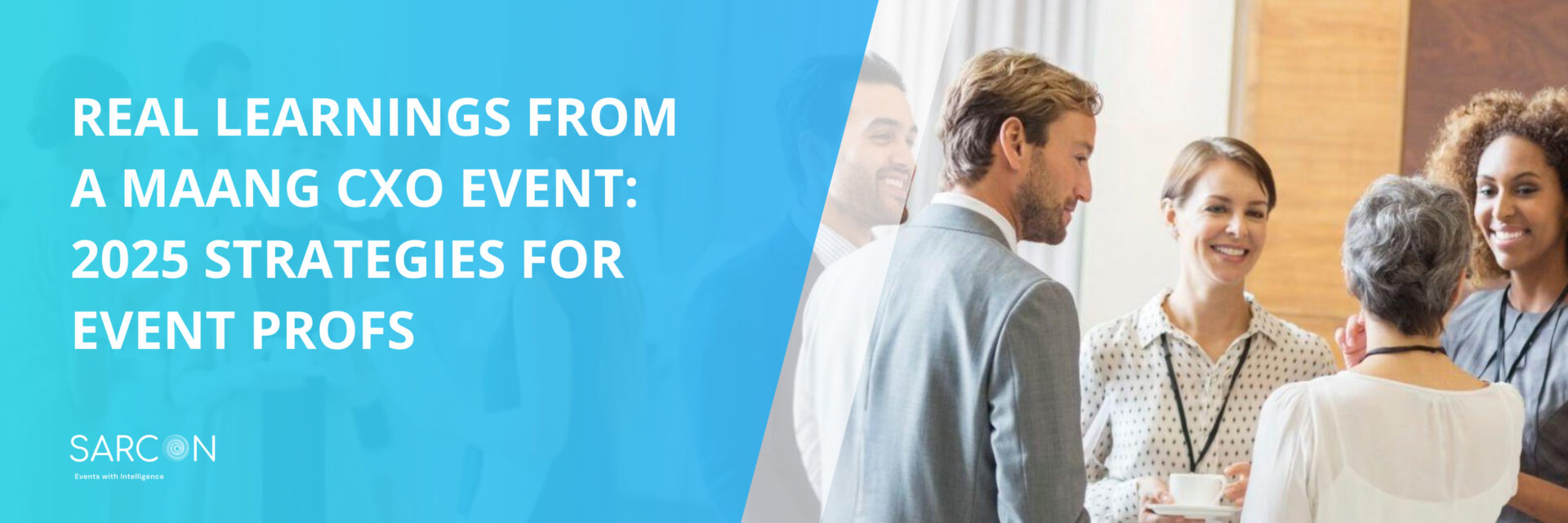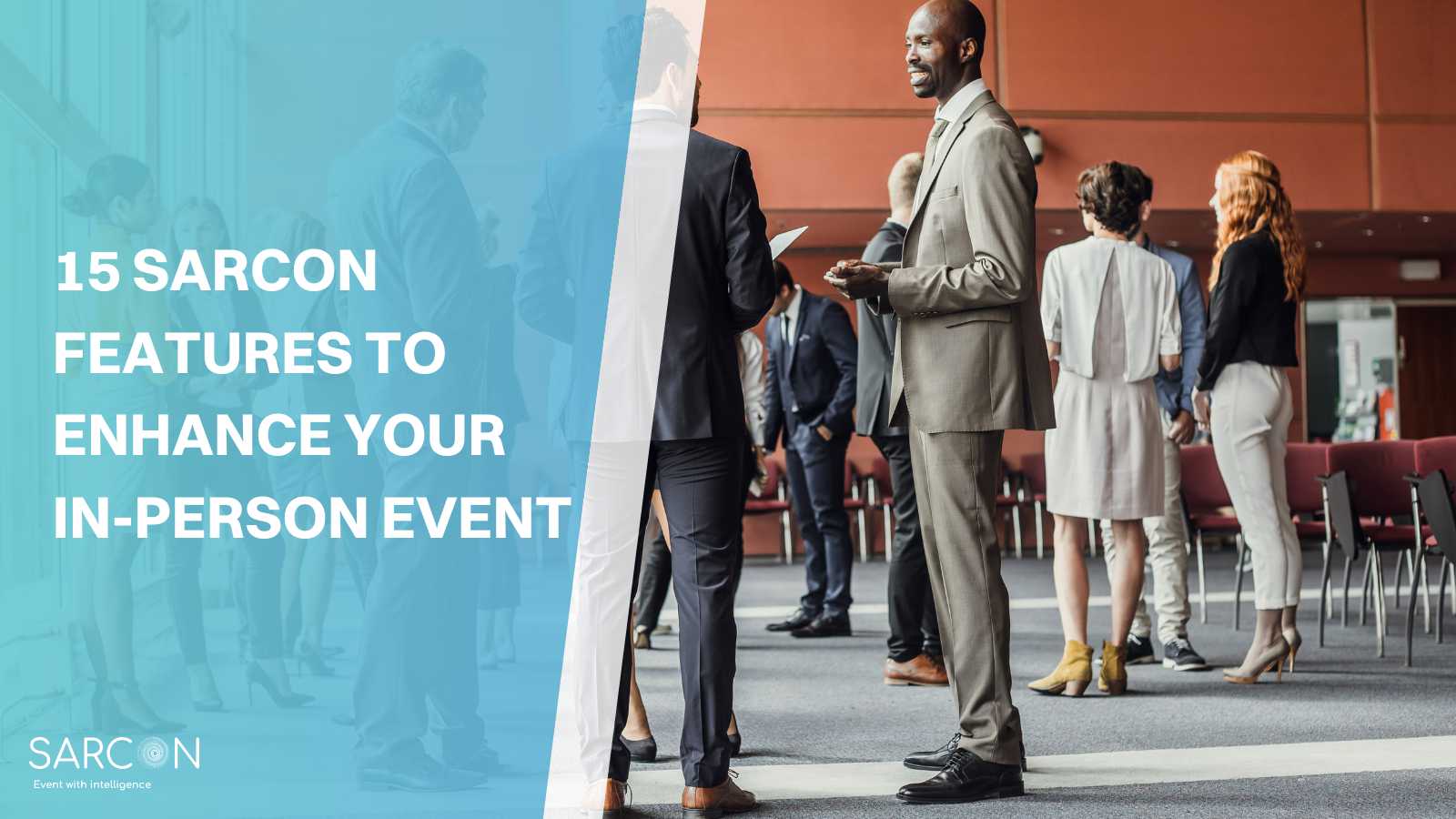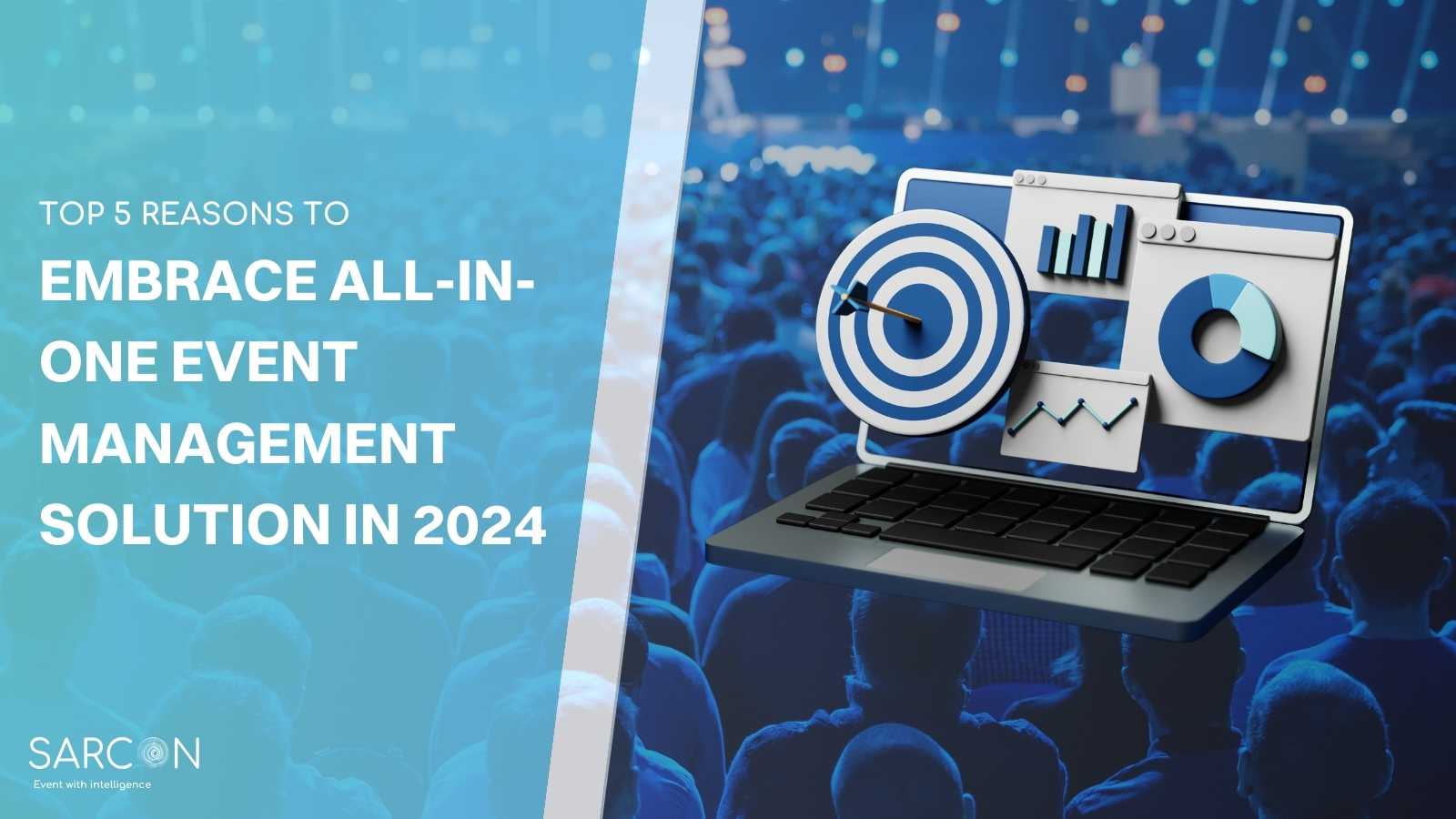In a world that’s increasingly driven by technology, using artificial intelligence (AI) to market your in-person event can be a game-changer. Whether you’re organizing a conference, trade show, workshop, or any other type of event, AI can help you reach a wider audience, personalize your marketing efforts, and ultimately boost attendance and engagement. In this comprehensive guide, we’ll explore how you can harness the power of AI to effectively market your in-person event.
Understanding the Role of AI in Event Marketing
Artificial Intelligence refers to the simulation of human intelligence processes by machines, particularly computer systems. AI technologies, such as machine learning, natural language processing, and data analytics, have the potential to revolutionize event marketing by automating tasks, personalizing experiences, and providing valuable insights.
The Benefits of AI in Event Marketing
- Data-Driven Decision Making: AI can process and analyze large volumes of data quickly, enabling event organizers to make informed decisions based on real-time insights.
- Personalization: Personalization has become a cornerstone of successful marketing, and AI plays a crucial role in achieving it. AI algorithms analyze vast amounts of data to gain insights into attendees’ preferences, behaviors, and demographics. This information can be used to tailor marketing messages, content, and offers to each individual, increasing the likelihood of engagement and conversion.For example, AI can analyze a potential attendee’s past interactions with your brand and recommend relevant events or sessions. Personalized emails, social media ads, and event recommendations lead to higher click-through rates and conversion rates.
- Automation: AI-powered chatbots and virtual assistants can handle routine tasks, such as answering common attendee questions, freeing up human staff to focus on more strategic activities.
- Predictive Analytics: AI can predict attendee preferences, such as session choices or networking interests, based on their past behavior and interactions. This data allows event organizers to make personalized recommendations, create better session schedules, and optimize networking opportunities.
- Improved ROI: By optimizing marketing efforts and enhancing attendee experiences, AI can lead to a higher return on investment (ROI) for in-person events.
- Content Recommendation: AI algorithms can recommend relevant event content and sessions to attendees, enhancing their overall experience.
- Improved Event Planning and Logistics: Planning and managing an event, especially a large one, involves countless details and decisions. AI can streamline this process in several ways:
How to Successfully Integrate AI into Your Event Marketing
Now, let’s delve into the steps you can take to leverage AI for your in-person event marketing strategy.
1. Collect and Analyze Data
The foundation of AI-powered event marketing is data. Start by collecting as much data as possible about your target audience, including demographic information, past event attendance, online behavior, and social media interactions. You can gather this data through online forms, surveys, ticket sales platforms, and social media monitoring tools.
Once you have the data, use AI-powered analytics tools to gain insights into your audience’s preferences, pain points, and interests. This data will inform your marketing strategies and help you create personalized campaigns.
2. Personalize Your Marketing Messages
Personalization is a key advantage of using AI in event marketing. Craft tailored messages and content for different segments of your audience based on their preferences and behaviors. AI algorithms can help you identify patterns and segment your audience effectively.
For example, if your event caters to both beginners and experts in a particular industry, AI can help you send customized invitations and content to each group. Personalization not only increases engagement but also improves the chances of conversion.
3. Implement Predictive Analytics
Predictive analytics uses AI to forecast future trends and behaviors based on historical data. By analyzing past event attendance, registration patterns, and market trends, AI can help you make data-driven decisions.
For instance, AI can predict the likely attendance for your upcoming event, allowing you to adjust your venue size, marketing budget, and promotional efforts accordingly. This ensures you allocate resources where they are most needed and avoid unnecessary expenses.
4. Utilize Chatbots and Virtual Assistants
AI-powered chatbots and virtual assistants are excellent tools for providing real-time support to potential attendees. These bots can answer common questions, assist with registration, and even provide event details and updates.
By implementing chatbots on your event website or social media platforms, you can engage with potential attendees 24/7, offering a seamless and convenient experience. Additionally, chatbots can collect valuable data on attendee preferences and concerns, further enhancing your marketing efforts.
5. Content Recommendation
AI algorithms can analyze attendee profiles and behaviors to recommend specific sessions, workshops, or exhibitors that match their interests. This not only enhances the attendee experience but also increases the likelihood of cross-promotion within your event.
For example, if an attendee is interested in digital marketing, AI can suggest relevant sessions and booths related to that topic, making their event experience more valuable.
6. Automate Email Marketing Campaigns
Email marketing remains a powerful tool in event promotion. AI can help automate and optimize your email campaigns by sending personalized messages, segmenting your email list, and analyzing open and click-through rates to refine your content.
Additionally, AI can schedule email sends at the most effective times, increasing the chances of your messages reaching your audience’s inbox when they are most likely to engage.
7. Measure and Refine
After implementing AI-driven marketing strategies, it’s crucial to continuously monitor and measure the results. Use AI analytics tools to track key performance indicators (KPIs) such as registration rates, engagement levels, and conversion rates.
With these insights, you can refine your marketing strategies, making data-backed adjustments to improve your event’s success. AI allows for ongoing optimization, ensuring that your marketing efforts remain effective throughout the event promotion cycle.
Conclusion
Incorporating artificial intelligence into your event marketing strategy can significantly enhance your ability to reach, engage, and convert attendees. From data collection and analysis to personalization, predictive analytics, and automation, AI offers a wide range of tools to help you make your in-person event a resounding success.
As technology continues to evolve, embracing AI in event marketing will become increasingly important to stay competitive and deliver memorable experiences for your attendees. So, don’t hesitate to explore and implement AI solutions to make your next in-person event a truly remarkable and successful one.
FAQs
Q.Can AI help increase event attendance?
Yes, AI can significantly increase event attendance. By personalizing marketing efforts, predicting attendee preferences, and providing real-time assistance through chatbots, AI can attract more participants to your event.
Are there any risks associated with using AI in event marketing?
While AI offers numerous benefits, there are some risks to consider, such as data privacy concerns and the potential for technical glitches. It’s essential to implement AI responsibly and address these issues proactively.



